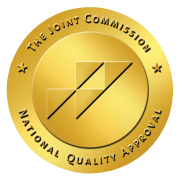Xanax for Anxiety: Is It a Good Long-Term Solution?
Xanax is one of the most common medications prescribed for anxiety. It can bring quick relief, but it’s rarely the full answer. Understanding how Xanax works—and its risks—can help you make informed choices about treatment and long-term wellness.
Understanding Xanax for Anxiety and Its Treatment
You might feel alone in your anxiety, constant fears, and overthinking. But the reality is anxiety is one of the most common mental health issues around the world. This is not to make light of anxiety. It should make us look at it with more gravity.
Anxiety is a worldwide issue that is causing anguish around the world every single day.
The symptoms mostly feel like excessive worry, tension, and nervousness, but it is incessant. There seems to be no reprieve, and for some people, it becomes debilitating. It’s tough to even get out of bed and take on life’s daily tasks.
Types of Medications for Anxiety
There are several classes of medications used to treat anxiety:
- Selective Serotonin Reuptake Inhibitors (SSRIs): These medications help increase serotonin levels, and they are often the first line of treatment.
- Serotonin-norepinephrine reuptake Inhibitors (SNRIs): These also affect serotonin and norepinephrine levels to alleviate anxiety symptoms.
- Benzodiazepines: These are fast-acting medications used for short-term relief. This is where Xanax for anxiety falls.
- Buspirone: A non-benzodiazepine that can be used for generalized anxiety disorder.
- Beta-Blockers: Often used to manage physical symptoms of anxiety, such as rapid heart rate.
Xanax for Anxiety: Long-term Results
Xanax is a benzodiazepine that enhances the effect of a neurotransmitter called gamma-aminobutyric acid (GABA) in the brain, which helps to produce a calming effect. It is often prescribed for Short-Term Relief. Xanax is effective in providing immediate relief from severe anxiety symptoms.
People still use it for the long haul, but again, it is to help with immediate symptoms. In the list above, medications such as SSRIs are often preferred. However, how helpful short-term relief can be in a person’s life shouldn’t be understated.
That moment of being able to calm yourself and take your thoughts back can turn your entire aspect around.
The Drawbacks of Long-Term Xanax Use
While Xanax can be a lifesaver during acute anxiety episodes, long-term use can lead to several issues:
- Dependence and Tolerance: Over time, your body may become dependent on Xanax, requiring higher doses to achieve the same effect.
- Withdrawal Symptoms: Stopping Xanax abruptly can lead to severe withdrawal symptoms, including increased anxiety, insomnia, and seizures.
- Cognitive Impairment: Long-term use of Xanax can affect memory and cognitive function.
- Sedation and Coordination Issues: Xanax can cause drowsiness and impair motor skills, increasing the risk of accidents.
Alternatives to Xanax
For those seeking long-term solutions for anxiety, consider these alternatives:
- Therapy: Cognitive Behavioral Therapy (CBT) and other forms of therapy can provide lasting strategies for managing anxiety.
- Lifestyle Changes: Regular exercise, a healthy diet, and adequate sleep can significantly reduce anxiety.
- Mindfulness and Relaxation Techniques: Practices like meditation, yoga, and deep-breathing exercises can help manage stress and anxiety.
- SSRIs and SNRIs: These medications can be more suitable for long-term anxiety management.
- Herbal Supplements: Some find relief with supplements like valerian root, kava, and chamomile, though it’s essential to consult a healthcare provider before use.
A Holistic Approach to Anxiety Treatment
Treating anxiety effectively often requires a combination of strategies. A holistic program might include:
- Medication: For immediate relief and as needed.
- Therapy: To address underlying issues and develop coping mechanisms.
- Lifestyle Modifications: Incorporating exercise, healthy eating, and sleep hygiene.
- Mindfulness Practices: Engaging in activities that promote relaxation and mental well-being.
Getting Help with Anxiety’s Root Issues
Anxiety does result from chemical imbalances in your brain. This is why medication can help. But there is more. Certain types of talk therapy and groups are proven to make a difference in people with anxiety.
Real treatment is multifaceted and understands this holistic approach to mental health wellness.
At Lido Wellness Center in Newport Beach, our clinical team helps clients understand when medication is appropriate and when therapy may be the better path. We offer holistic programs designed to reduce anxiety safely and build lasting emotional stability.
If this approach sounds like it could work for you or someone you love, call Lido Wellness in Newport Beach, California, today at 949-541-8466.
Frequently Asked Questions about Xanax for Anxiety
Q: Is Xanax good for anxiety?
A: Xanax can offer quick relief for severe anxiety or panic attacks, but it’s usually intended for short-term use. Long-term anxiety management often involves therapy and lifestyle changes rather than medication alone.
Q: What are the risks of taking Xanax long-term?
A: Extended use of Xanax can lead to dependence, tolerance, and withdrawal symptoms. It may also affect memory, coordination, and sleep quality.
Q: Are there natural or therapy-based alternatives to Xanax?
A: Yes. Treatments such as Cognitive Behavioral Therapy (CBT), DBT, EMDR, mindfulness, and holistic care can help address the root causes of anxiety without relying on medication.
Q: When should I seek help for anxiety?
A: If anxiety affects your sleep, work, or relationships, professional help can make a difference. Lido Wellness Center in Newport Beach offers evidence-based programs that promote lasting calm and emotional balance.
Last Updated: November 2025

